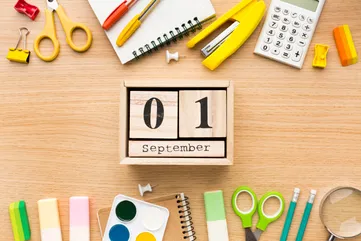Planning and Prioritization
Planning and prioritization help teens organize multiple tasks, identify what matters most, and create realistic sequences for getting everything done without last-minute panic.
Why poor planning creates crisis
Without planning and prioritization skills, teens live in constant emergency mode, always reacting to the latest deadline.
Planning problems include:
• Everything feels equally urgent
• Starting with easiest instead of important
• Underestimating time needed
• Forgetting about assignments until due
• Can't break large projects into steps
• Paralyzed by too many tasks
This creates chronic stress, poor performance, and the exhausting cycle of crisis management.
You're not alone
If your teen always has a "surprise" project due tomorrow, or spends hours on minor assignments while ignoring major ones, they lack planning and prioritization skills. These executive functions develop slowly, and schools assume students have them without teaching them explicitly.
What it looks like day to day
Student
Your teen spends three hours perfecting a minor assignment worth 5 points while ignoring a major project worth 100 points due the same day.
Parent
You discover at 9 PM that your teen has a huge project due tomorrow they "forgot about," leading to family-wide panic and exhaustion.
Tiny steps to try
Build planning and prioritization systematically.
- 1
Weekly planning session
Sunday review of upcoming week. Write everything down, identify priorities.
- 2
ABC method
Label tasks A (must do today), B (should do soon), C (nice if time). Do As first.
- 3
Time estimates
Guess how long tasks take, then track actual time. Improves future planning accuracy.
- 4
Backward planning
Start with due date, work backward to create mini-deadlines for components.
- 5
Daily top three
Each morning, identify three most important tasks. Success means completing these.
Why these skills matter
Planning and prioritization reduce stress while improving performance and preparing teens for adult responsibilities.
Students with these skills achieve more with less effort because they focus on high-impact activities. They avoid the anxiety of constant emergencies and develop confidence in managing complex demands. These executive functions become crucial for college success and career advancement.
Ready to help your teen thrive?
Get personalized 1-on-1 coaching to build better habits and boost grades. Join 10,000+ families who trust Coachbit.
Frequently Asked Questions
My teen resists planning, saying they work better under pressure. What should I say?
Acknowledge that deadline adrenaline can feel motivating, but explain it's unsustainable and stressful. Suggest experimenting with planning for just one week to compare stress levels and output quality. Often teens discover they produce better work with less anxiety when planned.
How detailed should planning be?
Start simple. Over-detailed plans overwhelm and rarely get followed. Begin with just listing tasks and due dates, then gradually add time estimates and priorities. The best plan is one your teen will actually use, even if imperfect.
Related Terms
Executive Function
Executive function is your brain's management system that helps teens plan, focus, remember instructions, and juggle multiple tasks successfully.
Goal Setting
Goal setting is the process of identifying specific, achievable objectives and creating actionable plans to reach them within defined timeframes.
Organization
Organization is the ability to create and maintain systems for managing materials, information, and time in ways that support efficiency and goal achievement.
Task Initiation
Task initiation is the ability to start tasks without excessive procrastination, even when the task feels boring, overwhelming, or difficult.
Time Management
Time management is the ability to plan, prioritize, and use time effectively to accomplish tasks and meet deadlines without constant crisis.
Related Articles

Finding Order in the Chaos – Setting up Calendars for Kids
Creating a calendar and daily schedule for kids can be beneficial to manage school, homework, extracurriculars and hobbies. Color-coding and time-blocking are helpful tools for kids with ADHD.
Read article
3 Ways an Executive Functioning Coach Can Help Your Child
Discover why executive functioning skills are crucial for your child's success. Learn how an executive functioning coach can make a difference
Read article
